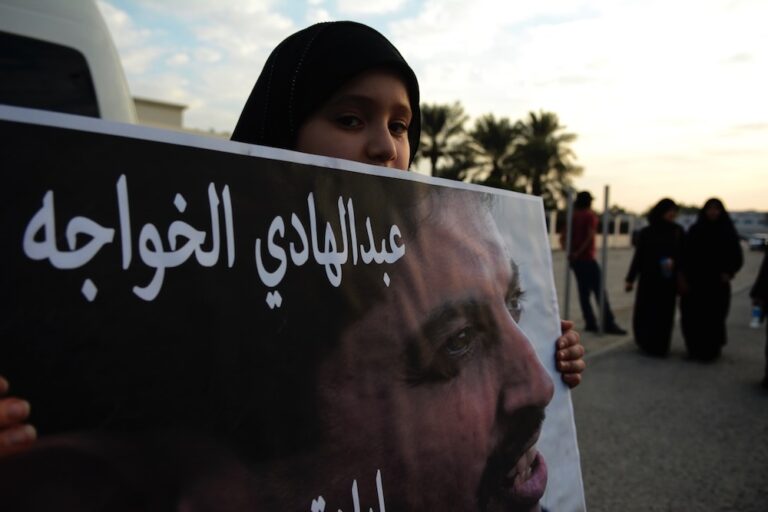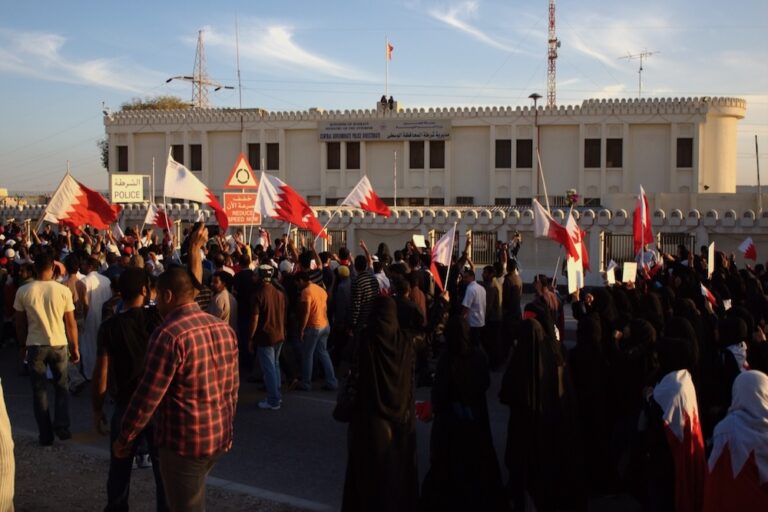Following the harassment of editor Mansoor al-Jamri, "Al Wasat" newspaper is no longer presenting critical reports.
(Human Rights Watch/IFEX) – Manama, April 11, 2011 – Bahraini authorities should immediately drop politically-motivated charges against Mansoor al-Jamri, allow him to return as chief editor of Al Wasat, and cease their campaign to silence independent journalism, Human Rights Watch said today. Al-Jamri’s resignation under duress and his subsequent indictment on charges of knowingly publishing fabricated news has left Bahrain without a single independent mass media outlet to report about the fierce repression that has killed more than two dozen people, wounded hundreds, and created a state of fear, Human Rights Watch said.
On April 11, 2011, the state-run Bahrain News Agency (BNA) reported that the Public Prosecutor will charge al-Jamri and two other editors “with publishing fabricated news and made up stories . . . that may harm public safety and national interests.” Bahrain’s Information Affairs Authority had previously suspended Al Wasat on April 2, 2011, following a program on state-controlled Bahrain television claiming that the paper had published “false news” and photos in its March 26 and March 29 editions and would not be allowed to publish on April 3. The Information Affairs Authority allowed Al Wasat to resume publishing on April 4, but only after al-Jamri, the founder and editor in chief, resigned, along with the managing editor and local news editor.
“Mistaken information is no justification for shutting down a newspaper and prosecuting its editor,” said Joe Stork, deputy Middle East director at Human Rights Watch. “Bahrain’s rulers are showing they have no shame by muzzling the one media outlet that was widely regarded as the country’s only independent news source.”
Human Rights Watch has monitored Al Wasat’s contents since the editors’ departure. It found that the paper has largely ceased publishing news and analysis differing from that of the rest of Bahrain’s mass media, which are effectively controlled by the state or government supporters. Coverage of subjects such as arbitrary arrests and deaths in custody, and other sensitive information, has been considerably reduced.
Al-Jamri and his colleagues told Human Rights Watch they examined the alleged false news and photos, and that the six items had been sent as emails from different addresses, but from a single external internet protocol (IP) source, based in a neighboring country. All of the false news items and photos dealt with alleged incidents, such as raids on homes by riot police, that have been frequent and routine in Bahrain since March 15. The emails appeared to have also been sent to other Bahraini newspapers, making them appear more authentic, but with small mistakes in the addresses so that in fact Al Wasat was the only recipient.
The authorities announced on April 3 that they would initiate legal proceedings against Al Wasat “following compelling evidence of press law violations including forgery and falsification.” On April 11, authorities summoned al-Jamri, managing editor Walid Nouwaihidh, and the head of the local news department Aqeel Mirza to the Public Prosecutor’s office, where they were questioned for more than two hours. The announcement that the three would be charged followed immediately.
On April 4, the Information Affairs Authority had separately summoned two Iraqi journalists who had worked for Al Wasat since 2005, Ali al-Sharefi and Rahim al-Ka’bi. Employees at Al Wasat told Human Rights Watch that the officials pressured them to claim that al-Jamri had knowingly fabricated the stories and photos in question. When they insisted otherwise, Bahraini authorities summarily deported them and their families.
( . . . )


